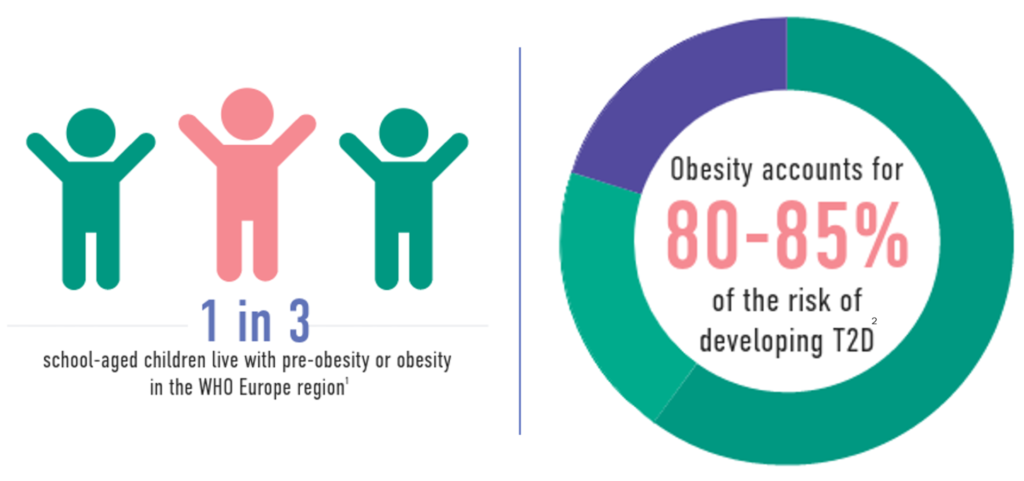Researching the roots of obesity
Our latest policy forum, held on 30th March 2022, focused on obesity and its impact across the life-course. The LongITools project, along with the ATHLETE project, is part of the European Human Exposome Network, the world’s largest network of nine projects studying the impact of environmental exposures (the exposome) on human health. Both projects are studying the effects of different environmental factors and lifestyle on health in determining the risks of developing metabolic diseases such as obesity. LongITools focuses on air pollution, noise and the built environment and ATHLETE focuses on chemical pollutants such as those present in plastic toys or personal care products.
The event brought together policymakers, intermediaries, and researchers to present their views and discuss obesity from different perspectives. The aim was to get to know one another, get a better understanding of the various stakeholders’ needs and exchange information. Chaired by Beta Technology, speakers included:
- Jacqueline Bowman-Busato, Policy Lead, European Association for the Study of Obesity;
- Romy Gaillard, Assistant Professor of Paediatrics, Erasmus Medical Centre;
- Sylvain Sebert, LongITools Project Coordinator and Professor at University of Oulu;
- Marjukka Kolehmainen, Professor of Food and Health, University of Eastern Finland;
- Martine Vrijheid, Research Professor and Head of the Childhood and Environment Programme, ISGlobal, ATHLETE Project Coordinator.
The forum discussed the definition of obesity from a clinical and a policy perspective, as well as why it matters. The forum presentations also covered the early life origins and consequences of obesity, the exposome and obesity, and nutrition and the obesogenic environment. One of the key issues identified during the meeting was the need to review the definition of obesity to ensure that all stakeholder groups are on the same page. The outcome was an agreement to continue discussions and work together on an obesity opinion paper to try to provide clarity on some of the issues raised.
A recording of the event is available on request.
Obesity, a long-term health challenge
Obesity is a chronic relapsing disease and can be attributed to a number of factors including, biology, genetic risk, life events, food and the environment. Defined by the World Obesity Federation, these ‘roots of obesity’ highlight the fact that the disease is complex and there is no easy, one-size fits all solution to one of the greatest long-term health challenges we face.
Preconception and early life are critical periods for the prevention of obesity. Approximately 11% of neonatal deaths are attributed to maternal pre-obesity and obesity, and currently 1 in 3 children are living with pre-obesity or obesity in the World Health Organization (WHO) Europe region.1 Obesity also acts as a gateway to a range of other non-communicable diseases. For example, pre-obesity and obesity account for 80-85% of new type 2 diabetes cases.2 In fact, there are over 230 medical complications resulting from obesity.

Future LongITools events
The LongITools policy forums are run every six months and the next event will be held on Thursday 29th September 2022. Please email Claire Webster to register your interest for this or future events.
References
11. https://www.who.int/europe/publications/m/item/obesity-in-the-who-european-region-factsheet
2https://www.diabetes.co.uk/diabetes-and-obesity.html